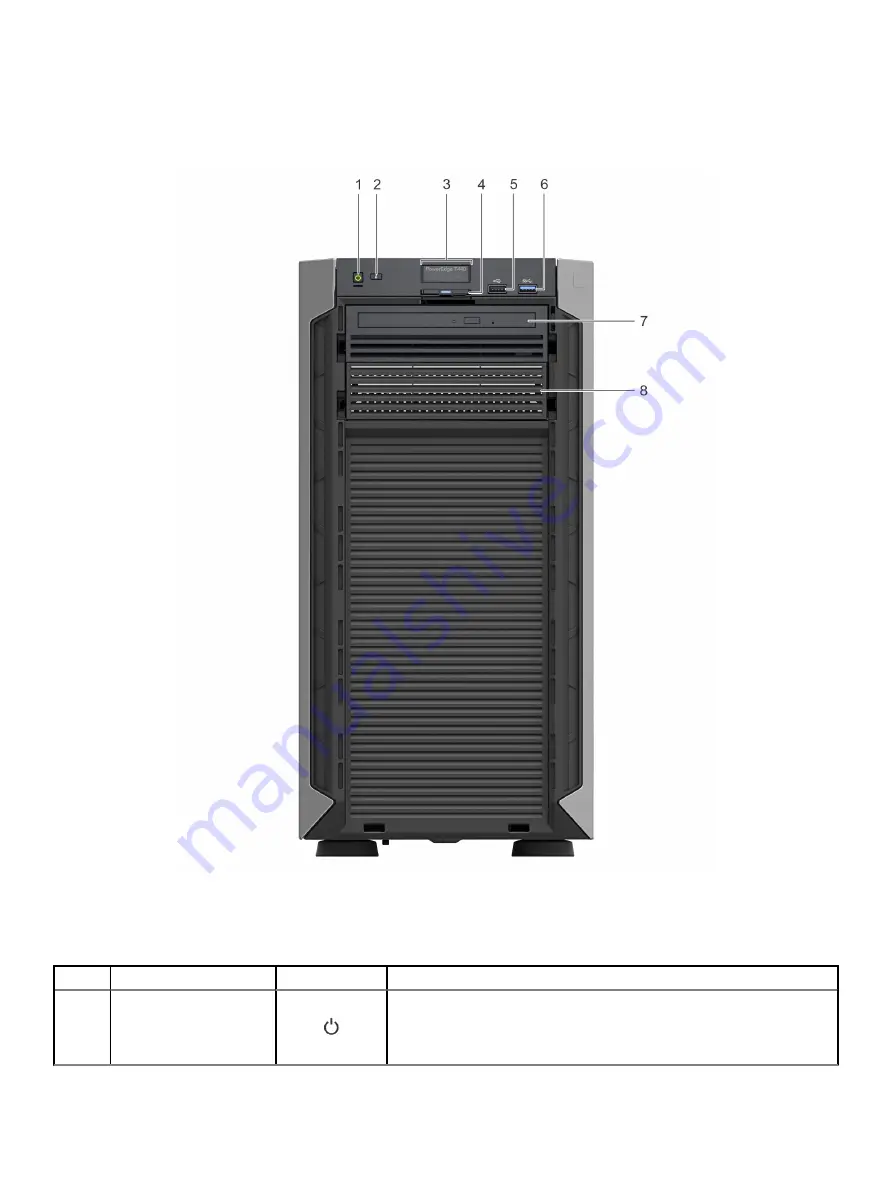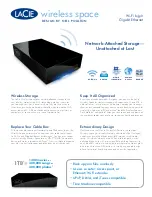
Front view of the system
The front view displays the features available on the front of the system.
Figure 2. Front panel view of 4 x 3.5-inch cabled drive system
Table 1. Front panel features
Item
Components
Icon
Description
1
Power button
Indicates if the system is turned on or off. Press the power button to manually
turn on or off the system.
10
Dell EMC PowerEdge T440 system overview











































